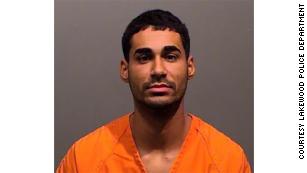That's Judge Scola in this Order:
[I]n light of the recent Omicron surge of Covid-19 cases in Miami-Dade County, the Court advised counsel that all members of the prospective jury panel must be vaccinated. Counsel for the Plaintiff did not object to the Court’s procedures. Defense counsel, claiming they did not want to exclude unvaccinated jurors from the trial, objected to the Court’s use of only fully vaccinated prospective jurors.
All of us who participate in the justice system have a shared obligation to protect those who enter the courthouse. This grave obligation is particularly pronounced as to jurors and witnesses, who are present only under legal compulsion. See 28 U.S.C. § 1866(g).
Just as the Court and the legal profession have an obligation to protect those who enter the courthouse, all of us have an obligation to consider the safety and well-being of our community. The vast majority of adults in Miami-Dade County have met this obligation. Over 94% of Miami-Dade County adult residents have been vaccinated. See Miami-Dade County Covid-19 Daily Dashboard, dated January 17, 2022, available at www.miamidade.gov/information/library/2022-01-17-covid-dashboard.pdf. It is the Court’s belief that the vast majority of the unvaccinated adults are uninformed and irrational, or—less charitably—selfish and unpatriotic. The Court believes that these individuals have given a distorted meaning to the COVID-19 vaccine, rather than recognize the vaccine for what it is—an effective and safe means of minimizing transmission and illness.
Whether uninformed and irrational or selfish and unpatriotic, no citizen is excused from considering their obligation to the health and well-being of their community. Else, the health, welfare, and safety of society would be subordinated to a substantial minority. Over one-hundred years ago, the Supreme Court upheld a State’s compulsory vaccination program and noted that nothing in our democracy grants an “absolute right in each person to be . . . wholly freed from restraint.” Jacobson v. Commonwealth of Mass., 197 U.S. 11, 26 (1905). The Court held that individuals may be called upon, and even compelled, to protect their community, whether by means of vaccination or by conscription. Id. at 29. “[O]rganized society could not exist” otherwise. Id. at 26.
In a way, the jury is a microcosm of organized society. It “lies at the very heart of the jury system” that “those eligible for jury service are to be found in every stratum of society.” Thiel v. S. Pac. Co., 328 U.S. 217, 220 (1946). Old and young, disabled and immunocompromised, all are called to jury service. The Court will not abdicate its duty and obligation to ensure the protection of these witnesses and jurors by exposing them to risks, particularly when those risks are heightened by the Omicron variant. While the Court does not believe that excluding unvaccinated jurors in the middle of a pandemic is legally impermissible, it nonetheless does not want to create an appellate issue.
The specially-set jury trial beginning on February 7, 2022 is cancelled.
Meantime, the Supreme Court isn't immune from these sorts of fights. Justice Gorsuch refused to wear a mask even though his Chief asked him to in order to protect his fellow Justice Sotomayor. He refused. What is going on?! From NPR:
It was pretty jarring earlier this month when the justices of the U.S. Supreme Court took the bench for the first time since the omicron surge over the holidays. All were now wearing masks. All, that is, except Justice Neil Gorsuch. What's more, Justice Sonia Sotomayor was not there at all, choosing instead to participate through a microphone setup in her chambers.
Sotomayor has diabetes, a condition that puts her at high risk for serious illness, or even death, from COVID-19. She has been the only justice to wear a mask on the bench since last fall when, amid a marked decline in COVID-19 cases, the justices resumed in-person arguments for the first time since the onset of the pandemic.
Now, though, the situation had changed with the omicron surge, and according to court sources, Sotomayor did not feel safe in close proximity to people who were unmasked. Chief Justice John Roberts, understanding that, in some form asked the other justices to mask up.
They all did. Except Gorsuch, who, as it happens, sits next to Sotomayor on the bench. His continued refusal since then has also meant that Sotomayor has not attended the justices' weekly conference in person, joining instead by telephone.










